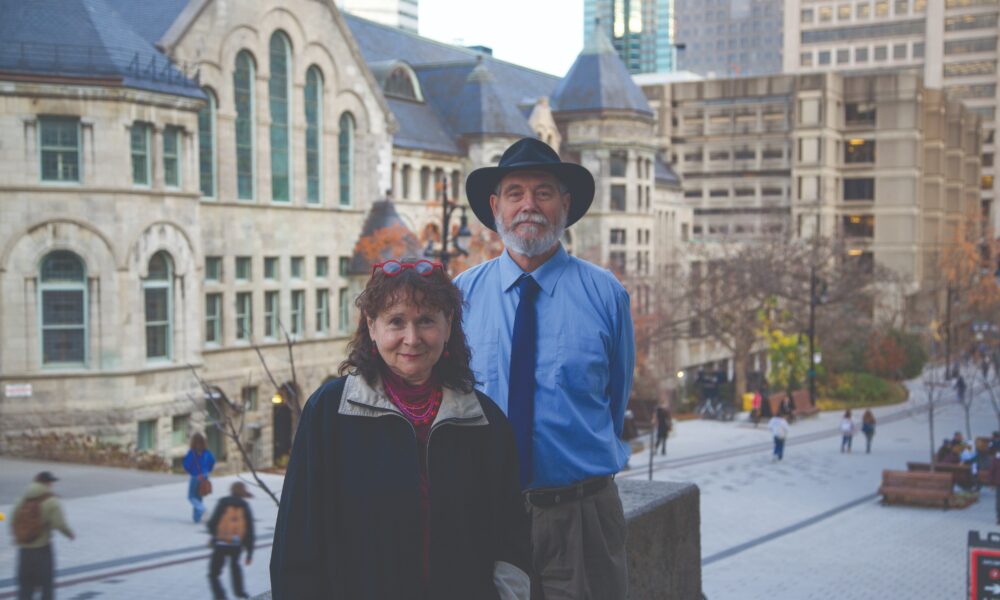In the summer of 1950, Lida Moser set out from New York City on a journey to capture the spirit of Quebec through photographs. She was a single woman travelling with three men: Ethnologist Luc Lacourcière, folklorist Félix-Antoine Savard, and Paul Gouin, cultural advisor to Premier Maurice Duplessis. She did not speak a word of French.
Today, her corpus of over a thousand photos continues to resonate with Quebecois and non-Quebecois people alike. They have been carefully preserved in the Bibliothèque et Archives nationales du Québec (BAnQ) and exhibited at the Musée national des beaux-arts du Québec. Now, they live on vividly in the animated short film Lida Moser Photographer: Odyssey in Black and White, produced by Academy-Award nominated filmmaker Joyce Borenstein.
The McGill Tribune sat down with Borenstein and former McGill professor Norman Cornett to discuss the film and the lasting impact of Lida Moser’s photographs.
“What started me on this quest was seeing her photographs. They just bowled me over, they were exquisite. They recalled my idyllic summers as a child,” Borenstein said. “My parents rented and then bought a little old schoolhouse in the middle of the farmland of Quebec, in the Laurentians. We played with our neighbours, who were francophone farming kids. We didn’t need language at the time [….] We got along beautifully, and summers were my favourite times in my childhood.”
Currents of profound understanding run through the film. Borenstein was born in Montreal to an immigrant, anglophone, Jewish family, and relates to Moser as a woman persisting in a patriarchal world. She explores the complexities of feelings of otherness with lyrical empathy, by placing herself in Lida Moser’s shoes.
“I retraced her steps, I did her journey two and a half times,” Borenstein said. “It came alive, and I fell in love.”
Professor Norman Cornett, also a Montrealer, was likewise captured by Moser’s photographs and Borenstein’s film. Earlier this fall, Cornett discussed the film in depth with Borenstein as part of a series of video dialogues.
“What intrigues me in Lida Moser Photographer as a religious studies scholar is, particularly as it relates to [Bill] 96 and nationalism, it’s as though through the animated documentary, we can see Quebec, its history, its people, its language, through another lens, in another light,” Cornett said.
The film’s Quebec is not the Quebec of postcards or brochures. Lida Moser’s photos do not depict eminent figures, grand buildings, or familiar landmarks. They show children growing up, playing with kittens, and people sitting outside, working with tools. What, then, shapes La Belle Province are not majestic monuments, but images of everyday life. The resulting photographs relate to outsiders in Quebec and abroad in their sheer authenticity.
For Cornett, this approach, grounded in everyday occurrences, captures Moser’s essence.
“Lida Moser comes from that milieu, that ambience, of Jewish, left-leaning, socially conscious artists [….] They want to tell the people’s stories, not the bankers’ stories […] they want to tell the untold stories,” Cornett said. “To what extent are we doing justice to the history of French Canada, to the history of Quebec, if we’re only looking at it through the lens of those that are bigger than life?”
The film’s focus on everyday life crucially presents a rare and accessible ethnographic picture of Quebec in the 20th century. The language-less nature of photography and animation makes them boundary-breaking mediums to tell the story of a province whose identity exists entrenched in the French language.
“Somehow art gets through […] no matter the language,” Cornett said. “Art transcends language, art transcends ethnicity, art transcends identity, art transcends the boundaries, the barriers, between us. And that is the beauty of Lida Moser Photographer. She doesn’t speak a word, and yet we hear her loud and clear.”
Lida Moser Photographer: Odyssey in Black and White is currently in distribution, but is available to McGill students as a DVD via interlibrary loan.








